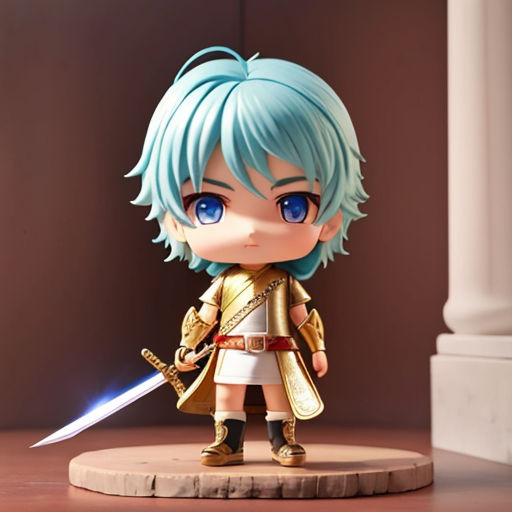
Sohrab and Rustum
By Storybird

24 Jun, 2023

Once upon a time in ancient Persia, there lived a great hero named Rostam. He was known for his strength, bravery, and countless victories in battles. Rostam had a son named Sohrab, who was destined to be a valiant warrior just like his father.

Sohrab's mother, Tahmineh, was the beautiful daughter of the king of Samangan. Rostam and Tahmineh fell in love, and Sohrab was born out of their union. Unfortunately, Rostam had to return to his homeland and left Tahmineh and Sohrab behind.

As Sohrab grew up, he became a strong and fearless young man. His mother told him stories about his father, and he longed to meet him one day. Sohrab decided to set out on a journey to find Rostam so that they could fight side by side.
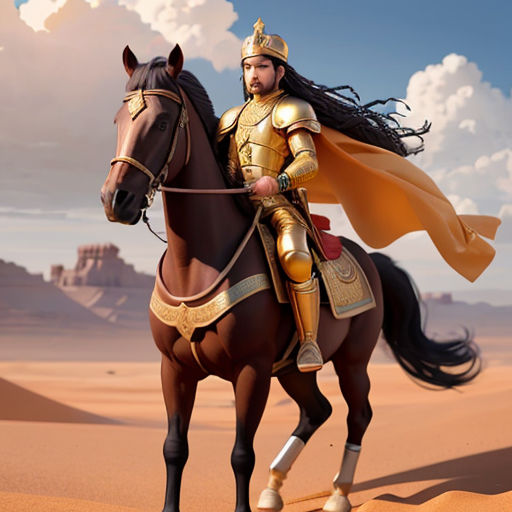
Meanwhile, in Persia, a prince named Esfandiar was seeking fame and glory for himself. Esfandiar was the son of Goshtasb, the mighty king of Persia, and he wanted to prove his worth by defeating Rostam, who was considered the greatest warrior.
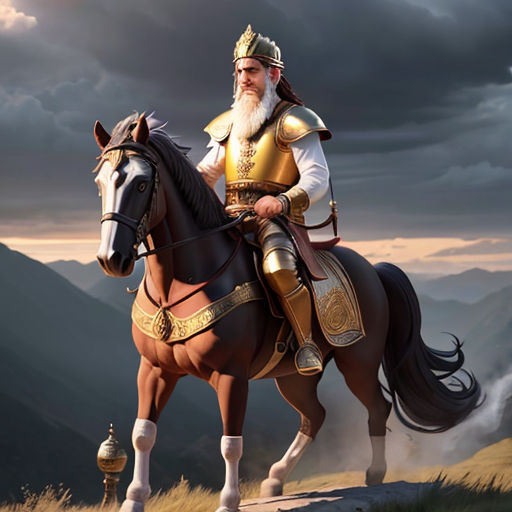
Thus, Esfandiar sought his father's permission to go to battle against Rostam. Although wary of the consequences, King Goshtasb agreed and ordered Esfandiar to capture Rostam and bring him to the royal court.

As Esfandiar prepared for his journey, Sohrab was also making his way to Persia with the same goal in mind. However, Sohrab did not know that his father was the same Rostam that Esfandiar was seeking to defeat.
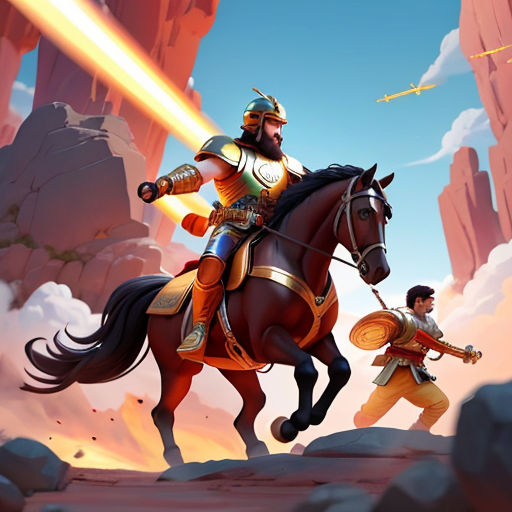
On his journey towards Persia, Sohrab encountered Esfandiar and his army. Assuming each other to be enemies, they decided to engage in battle. The fight between Sohrab and Esfandiar was ferocious, with both warriors showcasing their strength and courage.

Eventually, it became clear that Sohrab was the stronger of the two. However, Esfandiar did not accept defeat easily, and he continued to fight until darkness fell upon the battlefield. The two warriors agreed to resume their battle the next day.
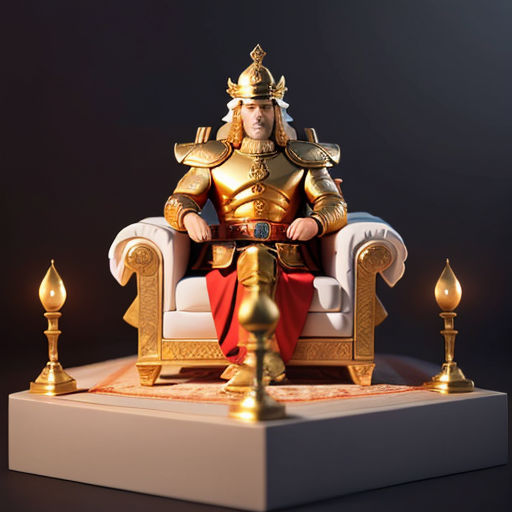
During the night, Esfandiar received a message from his father, King Goshtasb, who had heard about the battle. The king was impressed with Sohrab's strength and offered a truce if Sohrab agreed to join forces with Esfandiar against Rostam.

Sohrab, still unaware that Rostam was his father, agreed to the truce and joined forces with Esfandiar. Together, they marched towards Rostam's territory, intending to defeat the mighty warrior.

As they approached Rostam's lands, Rostam heard about the formidable force that was coming towards him. Unaware that his own son was in the enemy army, Rostam prepared for battle and rallied his troops.
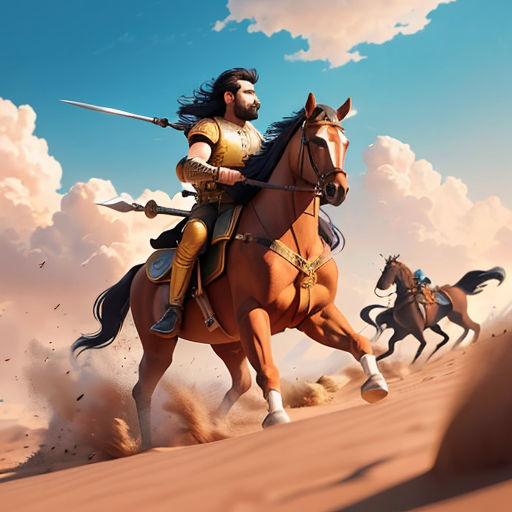
When the day of the fierce battle arrived, both armies clashed with great ferocity. Rostam faced Esfandiar in combat, while Sohrab engaged in fierce battles with other warriors, proving his might and valor.
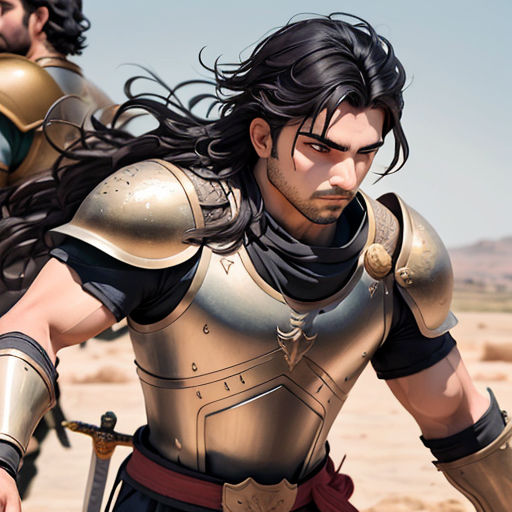
As the battle intensified, Rostam and Sohrab eventually found themselves facing each other. Both warriors were equally skilled and strong, and the fight between them lasted for many hours. However, neither of them knew that they were father and son.

As the sun began to set, Rostam managed to strike Sohrab with a powerful blow, causing him to fall to the ground. At that moment, Rostam noticed a distinctive bracelet on Sohrab's arm, which he had given to Tahmineh many years ago.
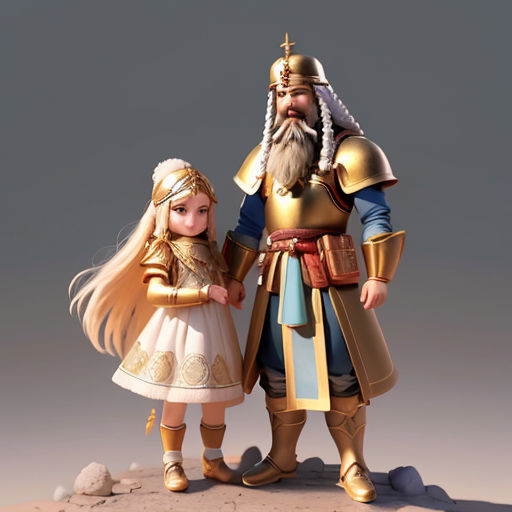
Realizing that he had just injured his own son, Rostam was filled with immense grief and regret. He rushed to Sohrab's side and tearfully revealed their relationship. The two warriors embraced each other, both shattered by the unfortunate turn of events.

Sohrab, gravely wounded, asked Rostam to send for a physician to heal him. Rostam hurriedly dispatched a messenger to find a doctor, hoping that Sohrab's life could still be saved.

However, fate had other plans. By the time the physician arrived, it was too late – Sohrab had succumbed to his injuries and passed away in his father's arms. Rostam was heartbroken, unable to comprehend the tragic loss of his son.
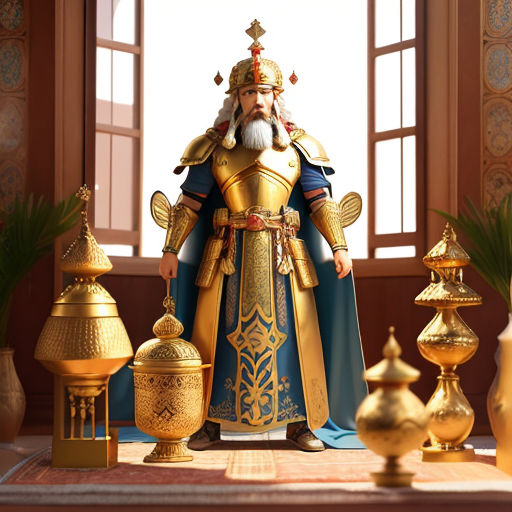
Esfandiar, who had been defeated by Rostam, returned to his father's court and told King Goshtasb the tragic story of Sohrab's death. The king, realizing the futility of war and the immense pain it had caused, decided to call off the conflict.
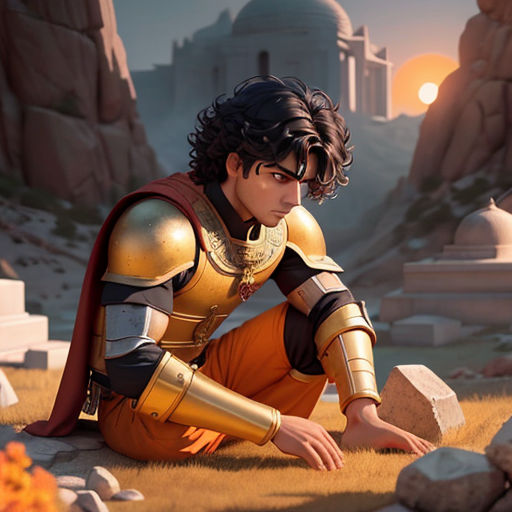
Rostam, devastated by the death of his son, decided to bury Sohrab in a magnificent tomb. He promised to honor Sohrab's memory and vowed to never again engage in a senseless war.

The story of Sohrab and Esfandiar serves as a poignant reminder of the tragedy of war and the importance of understanding and compassion. The loss of Sohrab was a devastating consequence of misunderstanding and miscommunication and has been immortalized in the timeless tales of the Persian epic, Shahnameh.